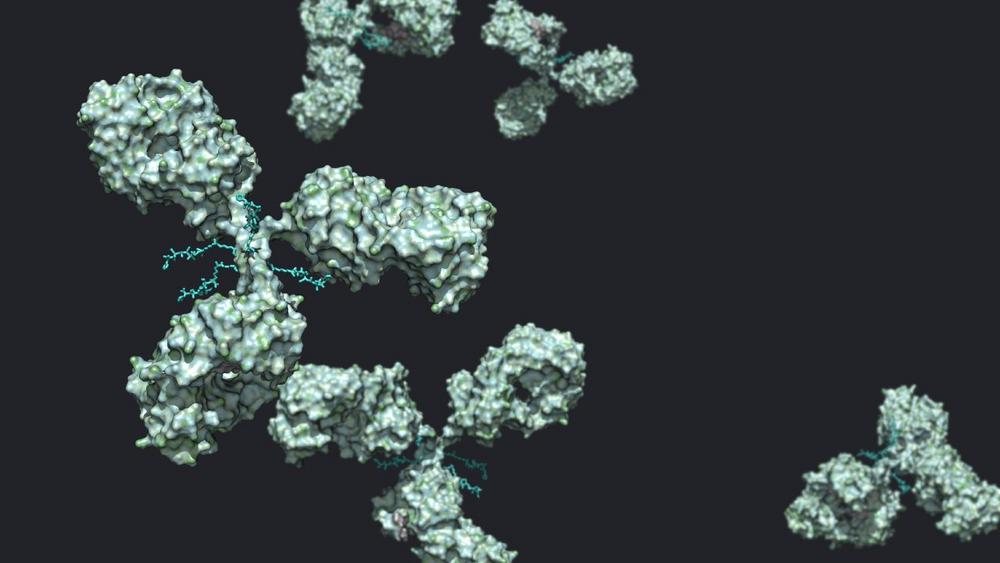So what does all this growth mean for innovator organizations? While these are exciting times for antibody drug development, there are challenges, many of which fall on the shoulders of analytics teams.
Specifically, as I look across ProtaGene’s client base and the industry at large, I see common challenges—grappling with unpredictable and inconsistent analytical demands, cost management concerns, and the occasional need for highly specialized analytical expertise, which is not always possessed by the in-house team. These demands are further exasperated by escalating pressures to shorten time-to-market. I’ve shared some of my experiences and observations related to these matters and would love to hear your thoughts and explore these and other challenges together.
1. Difficulty Matching Analytical Resources with Analytical Demands
Analytics are essential at every stage of antibody development, and demands increase as a molecule moves into later phases of development. However, a complication that nearly all innovators face is that almost 90% of therapeutics in development fail to reach the market. Unfortunately, failures often occur in human clinical trials after expending reasonable analytical resources.
Logically, most innovators align their analytical resources to account for several expected failures in Phase I and II trials. However, sometimes more investigational drug products than planned succeed and move to Phase III. While this is a good problem, it is challenging because analytical demands are much higher as the development organization prepares for Biologics License Application (BLA) filing. Analytical team resources become highly strained, and bottlenecks commonly result in costly delays.
Analytical departments can also be simply under-resourced, risking the development team’s ability to fill and move their development pipeline adequately—posing a clear risk to the long-term financial health of the overall biopharmaceutical organization. On the other hand, over-resourcing the analytical department risks eroding corporate profitability as personnel and other fixed costs sit idle or are under-utilized during lulls.
In short, my experience working with many development organizations points to analytical resource needs rarely being accurately predictable and certainly not constant. Therefore, an increasing number of innovator organizations see the value in a collaborative analytical partner that can seamlessly integrate with their in-house analytical team, allowing the organization to quickly scale up or scale down analytical resources to address the reality of unpredictable analytical resource demands.
2. Cost and Profitability Management
On the surface, work performed by an external analytical department is more expensive than that of an in-house team. Simple calculations will reflect a higher hourly or per assay rate when ProtaGene or any other external analytical partner conducts work.
However, a biologics organization’s highest costs are an insufficient development pipeline or delays reaching the market. While often less significant than market delays, the costs of insufficiently or unevenly utilized laboratories, instrumentation, and personnel cut into the organization’s bottom line.
As previously stated, the analytical demands of most biopharmaceutical organizations are not constant and can be difficult to predict. Volatile needs in many functional areas are best served in collaboration with an external partner allowing the innovator organization to throttle resources up and down appropriately and cost-effectively. In short, your analytical partner’s slightly higher hourly rate is a bargain compared to stalled market entry or bloated fixed costs.
3. Additive Scientific Support, Expertise, and Efficiency
Highly skilled and experienced analytical experts populate the analytical teams of most innovator organizations. However, as antibody therapeutic modalities become increasingly complex, innovator teams commonly have small gaps in specialized knowledge that can be collaboratively filled by ProtaGene experts, avoiding the need for additional innovator hires to address what often is a short-term need.
Additionally, ProtaGene’s teams of experts have worked on many programs and molecules. They are excellent collaborators when our innovator clients reach various development crossroads and need seasoned advice to navigate more nuanced development issues.
Finally, because ProtaGene works on many products, we have the experience to collaborate on challenging problems and the platform resources to efficiently manage analytical programs for more established drug products, like mAbs and mAb variants.
4. Make Room for Your Internal Team to Prioritize Their Innovative NBEs
Innovative mAb developers often have classical mAbs (such as IgG1, 2, or 4) and sophisticated, newly engineered bi- or multi-specific proprietary formats in their candidate pipelines. Though even development candidates based on the classical mAb format often need specialized expertise, the majority of analytical assays, in particular at early clinical stages, leverage platform methods.
Platform utilization makes outsourcing classical format mAbs with the right partner highly plannable and efficient. By collaborating with an experienced partner capable of applying the entire platform method panel for such mAb candidates, significant in-house resources can be prioritized for developing more complex innovative molecules.
5. Buying Confidence and Cost-Efficiency
Ultimately, our clients are buying confidence and/or cost-efficiency. Skilled ProtaGene Molecule Managers take ownership of client programs and provide confidence in the integrity of our analytical data, our ability to support regulatory filings, and our ability to manage projects on time and on budget. Clients also know that our team is ready and able to collaborate as challenges arise or fill in when highly specialized knowledge is required.
Our new biologic entity development partners frequently express that our approach to providing complete analytical solutions for an entire candidate offers both reliability and flexibility. They value our team’s dedication to accomplishing their development objectives rather than just executing individual assays—a significant point of distinction when I look across the field contract research organizations serving the industry.
Discover how ProtaGene can support your development programs in this Solution Brief: Antibody-Based Therapeutic Development Made Easy.
ProtaGene is a world leading CRO partner for the biopharmaceutical & gene and cell therapy industries. From discovery to product commercialization, we provide the most advanced analytic capabilities and packages for biologic therapeutics and cell & gene therapy platforms. A unique combination of analytical platforms makes us the leading analytic service provider.
ProtaGene GmbH
Inselwiesenstr. 10
74076 Heilbronn
Telefon: +49 (7131) 745040
Telefax: +49 (7131) 74504299
https://www.protagene.com
Marketing Manager
Telefon: +49 7131 74 50 40
Fax: +49 (7131) 74504299
E-Mail: marketing@protagene.com
![]()

